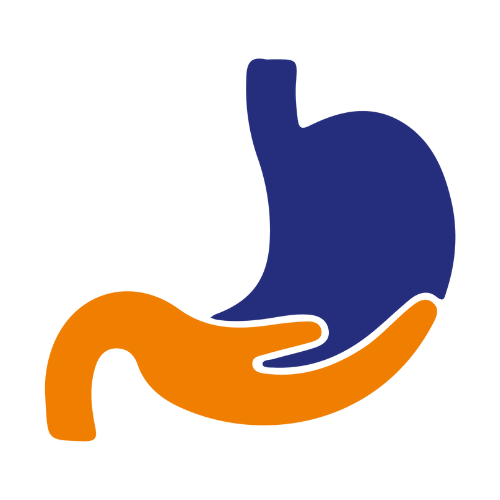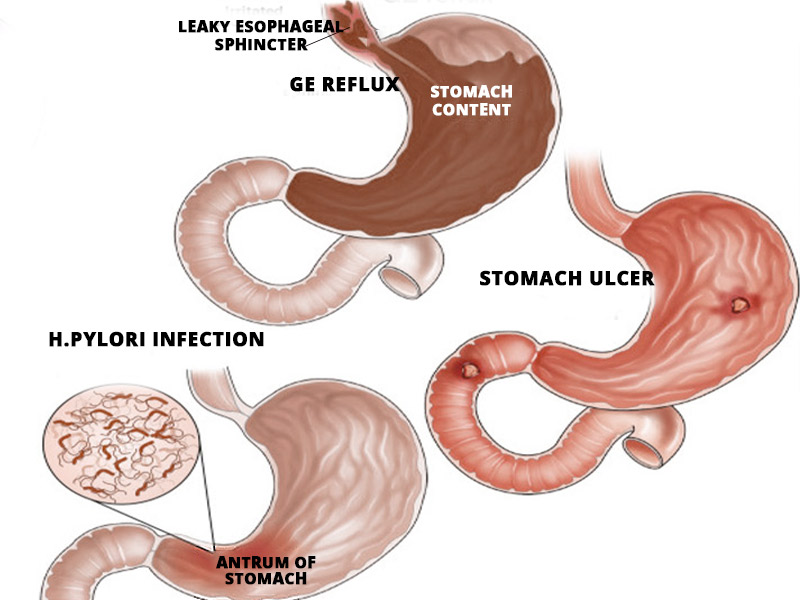Dyspepsia
Indigestion, or dyspepsia, describes an upset stomach. It may cause a painful or burning feeling in your abdomen (belly). Also called a sour stomach, indigestion may happen once in a while or often.
Indigestion is sometimes confused with heartburn. Heartburn, is a separate condition that affects your upper chest.
What are the Symptoms?
Symptoms of indigestion may include:
- Acidic taste in your mouth.
- Abdominal bloating.
- Burning pain in your stomach or upper abdomen.
- Burping and gas.
- Gurgling sound in your stomach.
- Nausea and vomiting.
What are the Causes?
- Drinking too much alcohol or caffeine.
- Eating too much or too fast.
- Eating fatty, spicy or acidic foods.
- Experiencing stress or anxiety.
- Taking certain medications, including aspirin — especially if taken on an empty stomach.
How is it Diagnosed?
A healthcare provider will review your medical history, symptoms and lifestyle. Your healthcare provider will do a physical exam. They’ll check your belly for swelling or tenderness. They may use a stethoscope (medical instrument to hear sounds inside the body) to check your stomach for growling or gurgling.
Other diagnostic tests may include:
- Blood tests, to assess your liver, kidney and thyroid function.
- Breath test, to check for H pylori.
- Imaging exams, to check for blockages or other problems in the intestines. Imaging exams may include X-ray, CT scan or upper endoscopy.
- Stool test, to check poop for H. pylori or other bacterial infections.
What are the Risk Factor?
Factors that can increase the risk of functional dyspepsia include:
- Female sex
- Use of certain over-the-counter pain relievers, such as aspirin and ibuprofen (Advil, Motrin IB, others), which can cause stomach problems
- Smoking
- Anxiety or depression
- History of childhood physical or sexual abuse
- Helicobacter pylori infection
How is it Treated?
What treatment you receive depends on your signs and symptoms. Treatment may combine medications with behavior therapy.
Medications that may help in managing the signs and symptoms of functional dyspepsia include:
- Over-the-counter gas remedies: Drugs that contain the ingredient simethicone may provide some relief by reducing intestinal gas
- Medications to reduce acid production: Called H-2-receptor blockers, these medications are available over-the-counter
- Medications that block acid ‘pumps’: Proton pump inhibitors shut down the acid “pumps” within acid-secreting stomach cells.
- Antibiotics. If tests indicate that a common ulcer-causing bacterium called H. pylori is present in your stomach, your doctor may recommend antibiotics in combination with acid-suppressing medication.
- Low-dose antidepressants.
- Prokinetics: Prokinetic agents help your stomach empty more rapidly and may help tighten the valve between your stomach and esophagus, reducing the likelihood of upper abdominal discomfort.
- Medications to relieve nausea (anti-emetics): If you feel nauseated after eating, your doctor may recommend an anti-emetic

